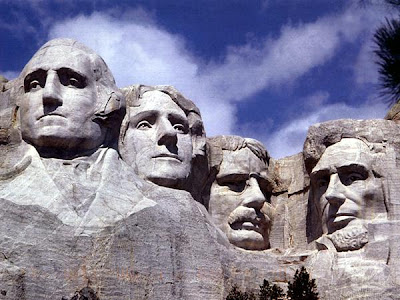 When we're little it's pretty easy to dream of having that famous "job" that brings us a life of fun, celebrity status, fame and riches.
When we're little it's pretty easy to dream of having that famous "job" that brings us a life of fun, celebrity status, fame and riches.Maybe when you were 8, or even 12, you wanted to me a baseball star, a pop idol or the president of the United States.
There were times when I thought I'd want to be an actor or author.
There's something inside of us that wants to be something, I'm not sure where that comes from, but maybe it's as simple as saying we want to be important. We want our life to matter.
Maybe that's why when we realize that the competition out there is pretty far and wide and that our talent might not lead us to the NBA or to Hollywood we expand our view of impact to a more "ground level" status. Maybe now we think more locally and 1-on-1, stuff like dreams of being a doctor or a teacher.
We think about making an impact in individual lives. And sure dreams of celebrity-level fame might still linger as we dream of being "discovered" somehow and somewhere, maybe we dabble in our dream on the side with a room set aside for our art studio, dream up documentaries to film or write poetry on the side. But we also chisel out our own path and decide we'd be okay be a famous architect, professor, historian, or whatever seems to fit.
Most people do not chose in their teen years they want to be an account, a hedge fund manager, or IT professional.
I would see office buildings and think "to work in one of those would be the death of me."
Of course, I think it can be different if your family is poor or has limited education. While the big picture dreaming of celebrity-style status is still present, some of those office-jobs start to look good early on because to be educated and professional is an accomplishment that means something to a family in a way someone of privilege might not experience or appreciate in the same way.
Regardless, the passion for influence seems to get snuffed out by articles on 401ks, discussion of pragmatic decision making, and making mature adult-like decisions.
I don't deny the importance of saving for retirement, being wise in decisions, and making a logical progression of adult decisions. Yet, I don't think that desire to make an impact dies. Instead it seems people end up feel trapped. And maybe not everyone, but I hear it, I see it.
Today I was discussing some of these ideas and they were saying how they just want to leave something behind. Someone said "People don't have to know my name, but I want to leave something behind." And then Mount Rushmore was mentioned.
And everyone agreed, that they would be happy being the not-famous creator of Mount Rushmore instead of the faces of the men on the rock itself whose names people can typically name.
Yet then I asked, "So you'd rather be someone who carved a rock then be a world changing founder of America?" And then it was quiet, as if realizing how quickly they traded in a dream of being great for the acceptability of simply leaving a memento behind that lasted.
Is it foolish to carry the spark that says "I want to change something?" Is it foolish to direct your life with a vision that will change the world? Should we accept leaving anything of value behind as a suitable replacement for making a significant difference in the world? Or is this just all foolishness and faulty dreams?
The People of Mount Rushmore: the faces on South Dakota monument known as Mount Rushmore are George Washington, Thomas Jefferson, Theodore Roosevelt, and Abraham Lincoln. And the sculptor of Mount Rushmore was Gutzon Borglum, whose son, Lincoln Borglum, completed oversight of the project after his father's death in 1941.

1 comment:
I adhere very strictly to Margaret Mead's theory: A small group of thoughtful people could change the world. Indeed, it's the only thing that ever has.
I am blessed in that I have children and grandchildren, and if I were concerned about leaving something behind, I'd have my solution, but "making an impact"---that's what I hope and strive for
Post a Comment